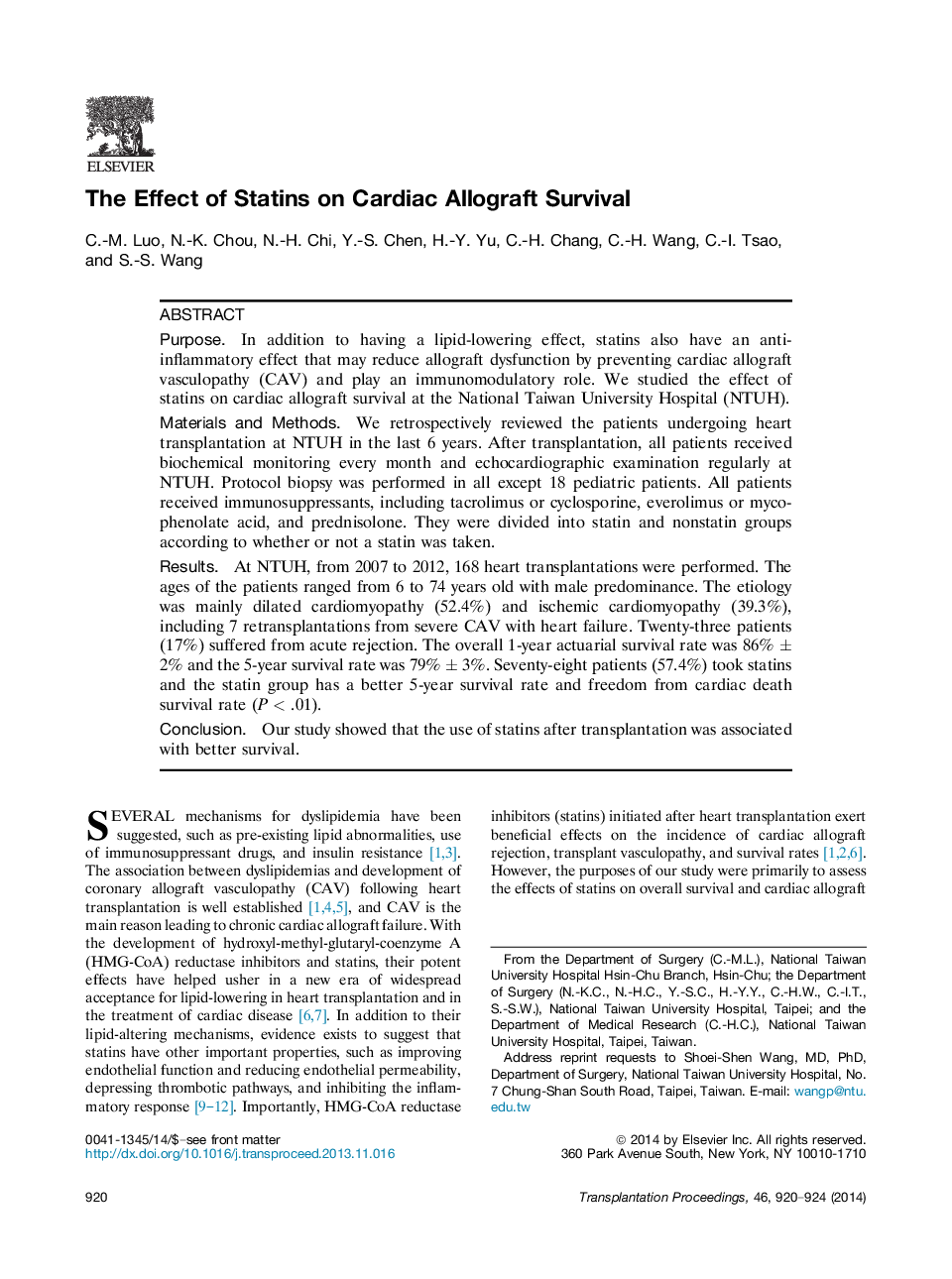| Article ID | Journal | Published Year | Pages | File Type |
|---|---|---|---|---|
| 4258427 | Transplantation Proceedings | 2014 | 5 Pages |
PurposeIn addition to having a lipid-lowering effect, statins also have an anti-inflammatory effect that may reduce allograft dysfunction by preventing cardiac allograft vasculopathy (CAV) and play an immunomodulatory role. We studied the effect of statins on cardiac allograft survival at the National Taiwan University Hospital (NTUH).Materials and MethodsWe retrospectively reviewed the patients undergoing heart transplantation at NTUH in the last 6 years. After transplantation, all patients received biochemical monitoring every month and echocardiographic examination regularly at NTUH. Protocol biopsy was performed in all except 18 pediatric patients. All patients received immunosuppressants, including tacrolimus or cyclosporine, everolimus or mycophenolate acid, and prednisolone. They were divided into statin and nonstatin groups according to whether or not a statin was taken.ResultsAt NTUH, from 2007 to 2012, 168 heart transplantations were performed. The ages of the patients ranged from 6 to 74 years old with male predominance. The etiology was mainly dilated cardiomyopathy (52.4%) and ischemic cardiomyopathy (39.3%), including 7 retransplantations from severe CAV with heart failure. Twenty-three patients (17%) suffered from acute rejection. The overall 1-year actuarial survival rate was 86% ± 2% and the 5-year survival rate was 79% ± 3%. Seventy-eight patients (57.4%) took statins and the statin group has a better 5-year survival rate and freedom from cardiac death survival rate (P < .01).ConclusionOur study showed that the use of statins after transplantation was associated with better survival.
